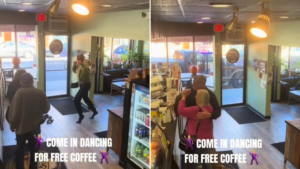It’s legal to have sex with a 12-year-old in the Philippines. Activists are trying to change that

She had already endured years of beating and physical violence from her mother and stepfather, she said — but then he took it a step further.
He would put a long knife near her face during the abuse, and threaten to kill her mother and brother if she reported him, she said. Terrified and ashamed, she didn’t speak out for a year and a half — until a school teacher saw her with a black eye and notified the police.
“I felt hopeless,” said Acupinpin, now 23. “It felt like I had nowhere to go because it’s my family who was hurting me. I didn’t know anyone who could really help me.”
She’s not alone. Child sexual abuse is rampant in the Philippines, which activists say is partly driven by the country’s low statutory rape threshold — the age at which individuals can legally consent to sex.
The law protects predators, critics say, because they can claim victims consented — and children as young as 12 can often be coerced or threatened into silence.
Welfare groups and victims’ advocates also argue the low age of consent contributes to high levels of sex trafficking and teenage pregnancy in the Philippines, compounded by gaps in the enforcement of existing laws.
Raising the age is just one step — the bill includes a raft of other provisions to strengthen enforcement, improve the investigation and legal process, and provide more support and confidentiality for victims.
A 90-year-old law
Activists in the Philippines have been pushing to change the law since the 1980s.
The age seems shockingly low by modern standards, but it reflects historical attitudes. In many places across Europe — including Spain, which ruled the Philippines as a colony for more than 300 years until 1898 — early laws placed the age of consent between 10 and 12 years old.
But as other countries amended their laws to reflect their evolving understanding of sex and adulthood, the Philippines’ age of consent stayed the same.
The penal code is “one of the oldest laws in the Philippines,” said Selena B. Fortich, Philippines country program manager for child protection at the NGO Plan International. “It has many archaic provisions — many do not apply and should not exist in contemporary society.”
Some clauses have been amended over the years, but not the age of consent — meaning there are now “inconsistent” legal ages, she added. “The minimum age for getting married is 18, to enter into contracts and to vote is also 18. Yet, the minimal age for sexual consent is 12.”
There are a few reasons the age of consent hasn’t changed in the past 91 years. A major one is the lack of education and understanding of concepts like children’s cognitive development and the ability to give informed consent, said Patrizia Benvenuti, child protection chief at UNICEF Philippines.
And though public awareness about the issue has expanded in recent years, the child rights sector is relatively new in the country and less established than other social movements, such as the campaign for women’s rights.
Why some lawmakers don’t want change
Some lawmakers argue there is no need to change the age of consent because the country already has laws against child abuse.
However, the existing laws require young, traumatized victims and their lawyers to prove they were coerced into sexual exploitation. It’s an easier task if a child is trafficked to multiple clients and sexual partners — but much more difficult when a child is abused by just one person, which is typically the case with abusive family members, said Benvenuti from UNICEF.
New statutory rape laws would automatically make sex with minors illegal, providing a layer of protection that isn’t up for debate.
“Why can’t we increase this age? The answer (from Congress) has always been, ‘Well, because we already have laws about this,'” said Bernadette J. Madrid, executive director of the Child Protection Network Foundation and head of the Child Protection Unit at the University of the Philippines Manila’s Philippine General Hospital.
All four activists and lawmakers CNN interviewed agreed the failure to act suggests a lack of concern or urgency in Congress.
The age of consent “was never prioritized as much as other issues,” said Fortich, from Plan International. “That’s a big challenge in terms of enforcement of the law. There’s a gap in terms of implementation.”
Abused at home
The study found perpetrators were often family members, and the abuse often took place in the home — making it harder to detect and for victims to pursue justice.
Acupinpin said she had been reluctant to come forward as a child because she feared people would blame her for the abuse. “I was scared that they might say, he’s my stepfather, I gave him my consent,” she said.
After Acupinpin’s teacher notified the police about her injuries, she was removed from her parents’ care and placed in a national orphanage — but even there she didn’t tell anyone about the sexual abuse. “I kept it to myself because I was so scared, because his threats still lingered in my mind,” she said.
It was only after she spoke with other children at the orphanage who had also been abused, that she finally disclosed the full extent of her stepfather’s abuse to her social worker.
Rampant sex industry
A higher age of consent enshrined in law could help young children better identify and report abuse — and curb the country’s flourishing sex trafficking industry, said Brosas, the lawmaker.
The country’s poorest children are particularly vulnerable to grooming and exploitation. There have been cases of children who are lured by traffickers’ promises to fund their education, or to provide food and shelter, she said.
“Sometimes because of impoverishment of our families, the parents themselves are the ones who are the perpetrators,” Brosas said. “As long as they are being sent money from people … they force their children into sexual abuse.”
Before Covid-19, the Philippines was a popular destination for sex tourists, due to lax regulations and poor enforcement against sex trafficking or abuse.
“Pre-pandemic, there are tourists with very young people with them — 16, 15 (years old), in hotels,” Brosas said.
However, in reality, there are often gaps in enforcement. The Philippine government “did not vigorously investigate and prosecute officials allegedly involved in trafficking crimes,” prosecute trafficking recruiters, or provide adequate support for child victims of sexual exploitation, said the US agency.
CNN has reached out to the Philippine Department of Justice and the Philippine Commission on Women, a government agency, for comment.
Lack of legal action
Even though reports of abuse have surged, only a small proportion of cases make it to court, and even fewer reach a conviction.
From March to May alone last year, as the country entered a strict coronavirus lockdown, the government’s cybercrime unit received 280,000 reports of online child sexual exploitation located in the country from a US nonprofit that receives referrals from major internet companies. That’s more three times the number of reports received during the same period the year before.
“We have so many 15-year-olds who give birth in our wards, and their partners are 30, even 40 years old,” said Madrid. “When we look at our statistics in our women and children’s protection units (in hospitals) … we find that the age where we have the highest incidents of sexual abuse is 13 to 15. It’s a mountain peak — just so high compared to the rest of the age groups.”
‘This is our best shot’
After decades of lobbying to change the age of consent, it has never felt more possible or more needed than now, said Brosas.
The bill’s supporters hope it has a better shot of being passed due to growing public awareness of the issue and a newly sympathetic Congress.
“Previous to (the current legislature), there was really an active opposition in Congress,” said Madrid, the child protection director. Some opponents said legal change was unnecessary, given the existing laws. Newer members of congress weren’t aware of the issue, she said.
“Some of the new congressmen were amazed — they didn’t know that the age of statutory rape was below 12,” she said. “So they asked me the same question: Why? I said, you tell me!”
‘We have no more time’
It’s been more than six months after the House bill passed, and the Senate still hasn’t produced a draft counterpart bill.
Next May, the current congressional session will end and seats will be up for election. If the bill hasn’t passed by then, it will be shelved and lawmakers will have to start over again. “We have no more time,” Brosas said.
And next year, they may find fewer allies in the House if former opponents return. “We don’t know who will be in the next Congress,” said Madrid. “We may be dealing with the same people, or not — we don’t know who will get elected. Maybe the people who were opposing (the bill) before will win again.”
Acupinpin was eventually moved from the orphanage to a rehabilitation center by Cameleon, a non-profit organization that supports victims of sexual abuse, where she now works as a member of their advocacy staff. She, too, is anxiously watching the bill’s progress, hoping it can help protect children from the abuse she endured.
After police intervened, her stepfather was arrested and charged with violating the anti-child abuse law, but the case dragged on for years and was ultimately never adjudicated. The legal process — countless invasive interviews, testimonies, hearings and disrupted daily life — was like continually reopening a wound, Acupinpin said.
“Until now, I still have nightmares,” she said. “I had to balance my psychological well-being, my mental battles, by talking to psychologists. At some points, it still comes back to me.”
If the bill, which includes clauses to make the process less traumatic for victims and provides a harsher penalty for those found guilty, had been law during her childhood, she said she would have pursued the case to the end.
“I felt like the justice system failed me at some point,” she said. “Even though I wanted to fight for justice, I felt like I had to sacrifice something — the trauma that I have to experience over and over again.”
“Many victims weren’t able to get the justice that they wanted because they were 14 or 15 at the time,” Acupinpin added. “We are defending children who cannot give consent … There’s a lot of victims suffering in silence.”






